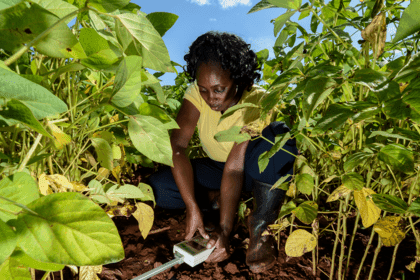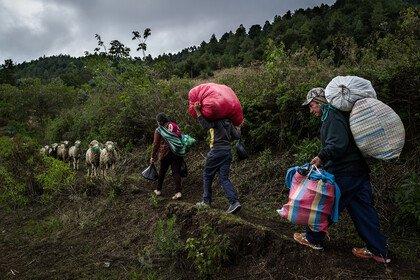
Wellcome commissions report on science’s environmental impact
Wellcome is seeking to support scientific researchers around the world to make their work more sustainable.
Wellcome is taking its first step in supporting scientific researchers around the world to think about, assess and mitigate the effect of their work on the environment.
Much scientific research inevitably has a large carbon footprint or causes other sorts of environmental harm, such as through single-use plastics or unsustainable waste disposal. Laboratories have been found to consume 5-10 times more energy per square metre than other academic spaces, while another study found life sciences responsible for 2% of the world’s plastic waste.
Wellcome wants to gain a better understanding of the existing tools and methods which are being used around the world to make scientific research more sustainable and to build on this to help researchers improve the ways they work in the future. It is commissioning a major public report in this area to allow it and other organisations to learn from global best practice, understand where more work needs to be done, and find innovative new solutions.
Wellcome will award a contract for this work, and applications are open from now until 12 May for initial expressions of interest and until 6 June for full proposals. Wellcome expects to publish the report early next year.
Talia Caplan, Project Officer at Wellcome, says: “Science doesn’t exist in a bubble. The health research we fund has an impact on the environment and can contribute to climate change. This in turn has the potential to have significant consequences for human health.
“In our report, we will not only be concerned with the carbon emissions caused by energy-intensive research activities, but the wider environmental impacts of health research, such as harmful waste disposal practices. This will allow us to examine the impacts on communities which are worst affected. We know, for example, that the detrimental health consequences that result from unsustainable waste disposal particularly effect individuals in low- and middle-income countries, where waste from the global north is typically exported to.”
She adds: “A degraded ecosystem and a climate in crisis are not environments in which good science can thrive. We are keen to answer questions around how we can best support our researchers to pioneer innovative methods of conducting health research in a sustainable way. And we are excited to build a strong network of like-minded organisations and individuals along the way to tackle the challenge posed by climate change together.”
“We know that many scientific researchers are deeply concerned about the environmental impact of their work. We are hoping to highlight and share tools and methods that can be used across the health research sector, as well as contribute to the conversation in this area.”
Science’s carbon footprint
- Laboratories typically consume 5-10 times more energy per meter squared than typical academic spaces.
- The pace of data driven innovation raises concerns that digital technology could outpace the world’s renewable energy sources. For example, training one of the largest AI language models (i.e. GPT-3) generated over 78,000 pounds of CO2 emissions in total - more than the average American adult will produce in two years.
- Beyond energy consumption, health research uses up natural resources and can produce large quantities of waste. It has been estimated that the life sciences alone account for 2% of the plastic produced worldwide.
Notes
Organisations that wish to apply for the contract should visit our contract opportunities page.

